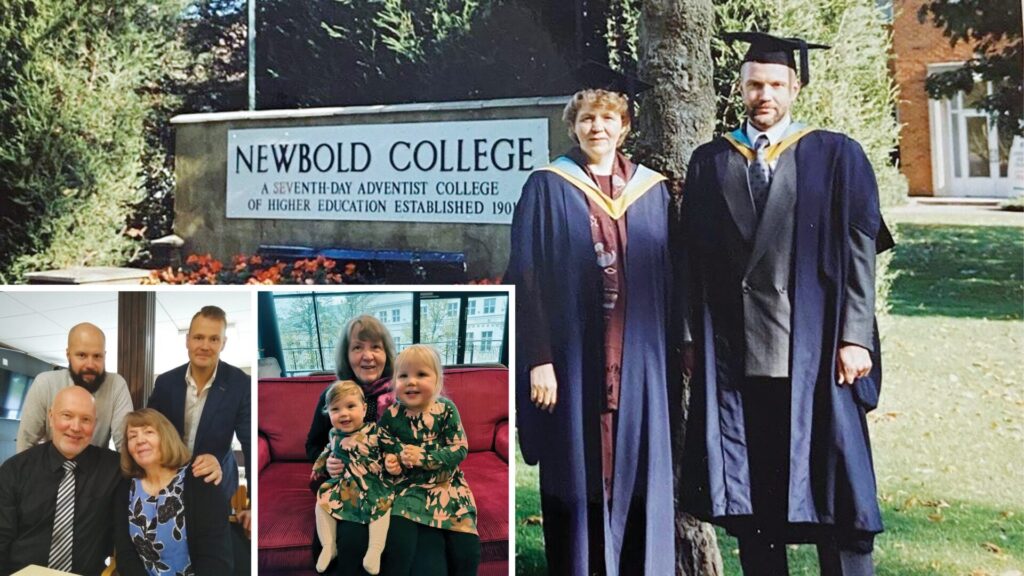Creation
God has revealed in Scripture the authentic and historical account of His creative activity. He created the universe, and in a recent six-day Creation the Lord made “the heavens and the earth, the sea, and all that is in them” and rested on the seventh day. Thus He established the Sabbath as a perpetual memorial of the work He performed and completed during six literal days that together with the Sabbath constituted the same unit of time that we call a week today. The first man and woman were made in the image of God as the crowning work of Creation, given dominion over the world and charged with responsibility to care for it. When the world was finished it was “very good”, declaring the glory of God. (Genesis 1-2; 5; 11; Exodus 20:8-11; Psalms 19:1-6; 33:6, 9; 104; Isaiah 45:12, 18; Acts 17:24; Colossians 1:16; Hebrews 1:2; 11:3; Revelation 10:6; 14:7.)
In many Christian communities, much energy and ink has been expended in the ongoing debates about Creation and evolution. Often this has drawn theologians and other Christian voices into semi-scientific arguments that have served only to reinforce the faith of the faithful, and led us into disputes about how and when that are not addressed by the Genesis accounts themselves. And when we insist on details beyond those the Bible gives, we are probably undermining our best arguments.
Belying this modernist Christian preoccupation, “creation science” is not the foundational argument for a sustainable Christian faith. Rather, Hebrews 11:3 offers a more robust and compelling genesis: “By faith we understand that the entire universe was formed at God’s command, that what we now see did not come from anything that can be seen.”1 In short, if we believe in Jesus, we believe in Creation (see John 1:3). This does not preclude the assistance science might bring to these discussions, but a faithful response to God’s self-revelation in Jesus is always the theological starting point.
Such recognition allows us to put aside—at least for a time—arguments about Creation versus evolution, and return the doctrine of creation to where it rightly belongs, as a question of faith and theology. Too often these debates have come at the expense of a deeper engagement with the Bible’s theology of creation: “Even the liveliest arguments that come close to the doctrine of creation . . . do not reflect the presence or development of a mature conversation about the doctrine of creation. Rather, they illustrate . . . that we have not had a lengthy theological debate on the doctrine of creation to draw from when we find ourselves addressing the pressing issues of our time.”2
True creationism offers greater significance to Christian theology and practice. It is a faith that engages more deeply with our Creator and His creation, and is passionately committed to caring for all aspects of our world and its people. In a world with an increasing focus on environmental issues and how these impact on human wellbeing, this is a call to a renewed and deeper embrace of creationism, offering the Church an opportunity to respond faithfully, compassionately, hopefully and practically.
Caring creationism
Our first task is to care for God’s good creation: “The Lord God placed the man in the Garden of Eden to tend and watch over it” (Genesis 2:15). In the biblical account, the world’s oldest occupation is gardening. The first man and woman were to be co-managers and sub-creators of the newly formed world. This is the continuing vocation of all people and particularly the calling of those who worship the Creator and call others to join in such worship (see Revelation 14:6, 7).
The earth is still the Lord’s (see Psalms 24:1) and we are still called to be stewards of the good things of the world on His behalf and for the good of all our fellow creatures. A useful analogy can be drawn from texts such as Proverbs 14:31—“Those who oppress the poor insult their Maker, but helping the poor honours him”—that those who would worship God ought to express this by caring for creation itself. And, in reverse, those who destroy and exploit creation dishonour the Creator in doing so. [pullquote]
However, as environmental exploitation and destruction have grown in our consciousness and in their impact on our planet and its most vulnerable people, we have seen only limited responses from the perspective of faith: “The scriptural view that the whole of creation belongs to God and that our role within the creation is limited, but also ennobled, to that of steward or servant seems to make little practical difference in the way many people order their lives.”3 Sadly for our faithful witness and for the good of creation, this call to human faithfulness has been distorted, disregarded or even flouted. As creation is degraded, the visibility of God in the world around us (see Romans 1:20) is increasingly obscured, and the conditions and possibilities of life are diminished for so many members of our human family. True creationists are leaders in creation care.
Ethical creationism
Human beings have a special place in creation, and more attention is given to their creation in Genesis 1 and 2 than to the rest of the story. Each of us—and every person we meet, work with, connect with or can have influence on or for—have inherent and unique value as the craftsmanship and image-bearers of our common Creator. While we might have many superficial differences, “the rich and poor have this in common: The Lord made them both” (Proverbs 22:2). Creationism is important to who we are as human beings in relation to God but also in relation to our fellow human beings and all of creation.
Old Testament scholar Christopher Wright points out a “strong creational base” for the Bible’s social ethics. Commenting on the explicit statement of Proverbs 14:31, among others, he points out that “the poor should be treated with the dignity that reflects the fact that they too are created by the same God. Indeed, what we do to or for them we do to or for God (in a remarkable anticipation of the teaching of Jesus)”4—referring to Jesus’ parable of the sheep and the goats (see Matthew 25:31–46). In oppressing and exploiting those who are weak and vulnerable, we actively deny our mutual Creator and thus deny substantive belief in creationism. On the other hand, helping the poor honours—even worships—the Creator and, as such, is a marker of true creationism.
Many Bible references link creationism with concern for the oppressed and vulnerable (see particularly Psalm 146:6,7). As such, creationism is a foundational principle of faithful justice-doing: “Exploiting one created in God’s image as a mere means to an end is the penultimate sin against God’s law, following only the sin of failing to acknowledge and worship God alone as God.” But these two pre-eminent sins are more inter-related than we might assume: “If we refuse to respect the life of one created in God’s image, we will not reverence the One in whose image she is created.”5
True creationism
Throughout the Bible, the claims of God as our Creator are recurring and compelling. Among the many implications of this theme is a primary motivation for caring about others, being concerned for the less fortunate and pursuing justice, and caring for creation itself. As all-encompassing as creation itself, God as our Creator is a claim that demands all our lives, including our worship, and our service and care for others.
It’s so much more than arguing against evolution—and if we were to better live out the true meaning of creationism, such arguments might be less necessary.







